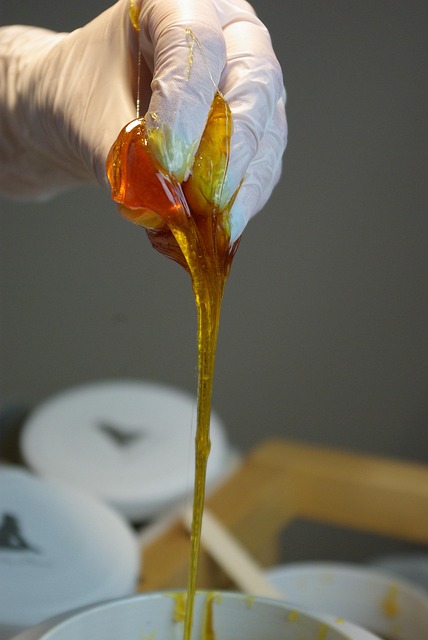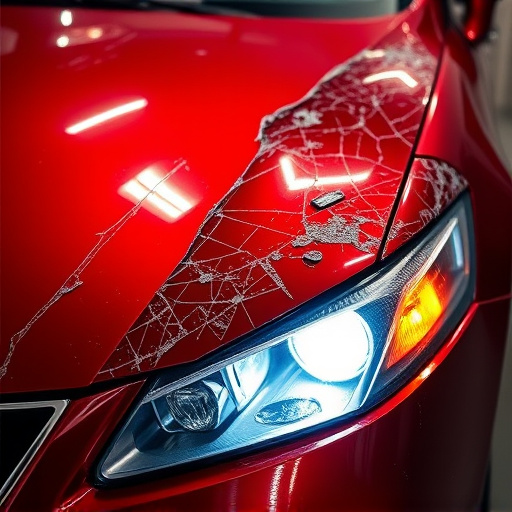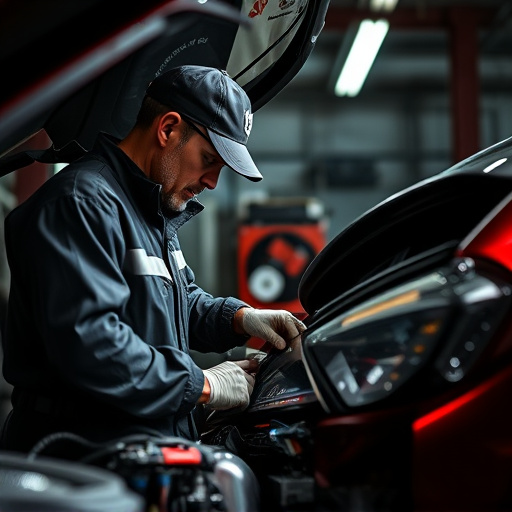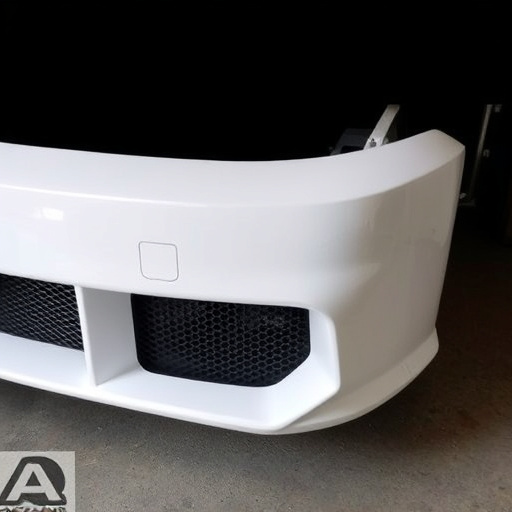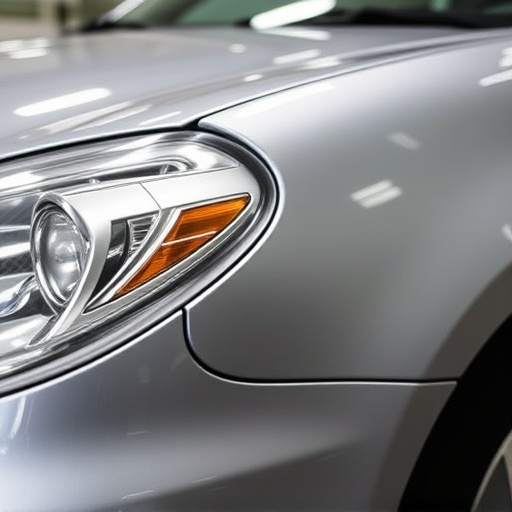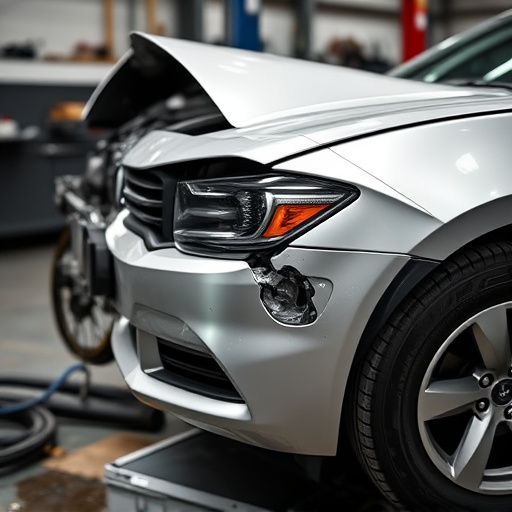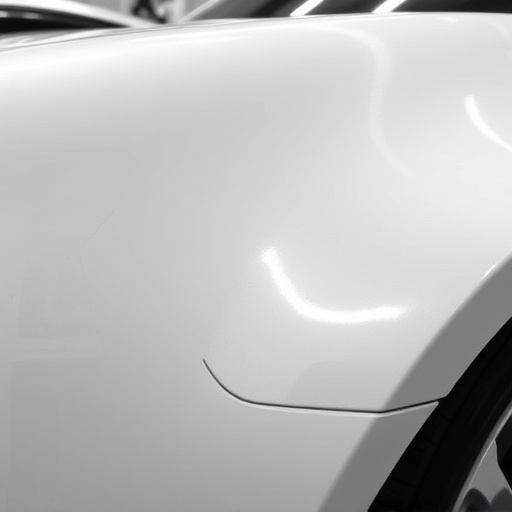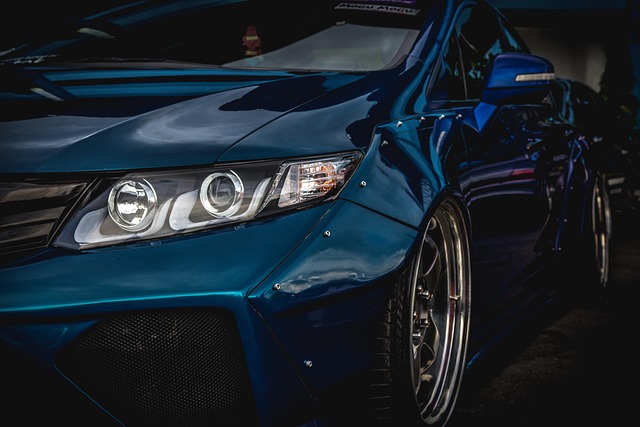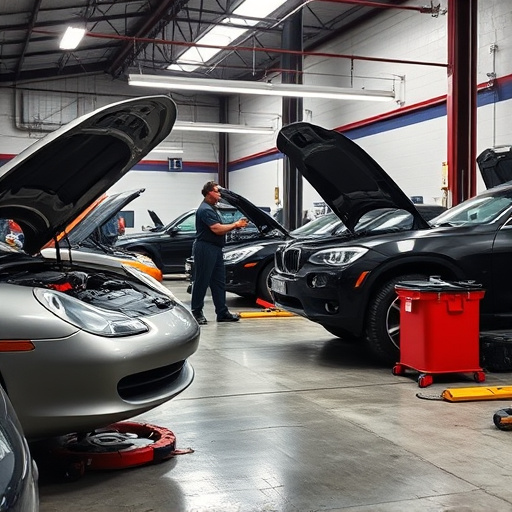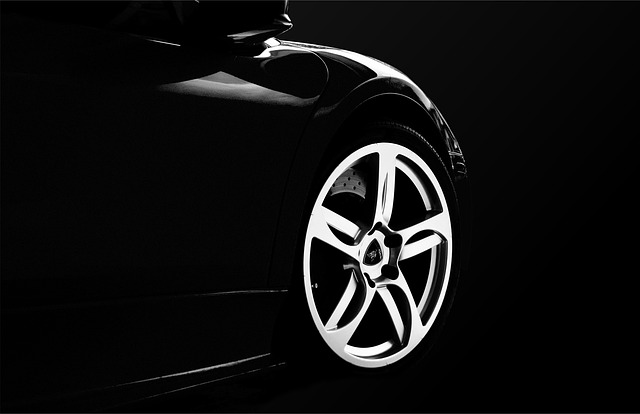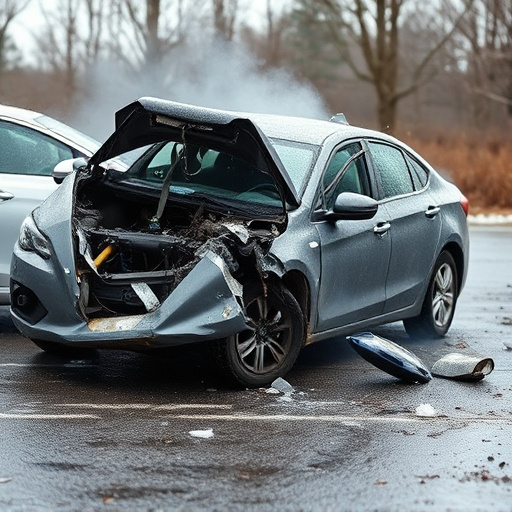Corrosion, caused by metal oxidation, severely impacts vehicle durability, aesthetics, and safety in humid or extreme climates. Effective corrosion protection involves understanding its causes and implementing strategies such as regular vehicle paint repair and car restoration. Skilled auto body shops use advanced techniques to mitigate corrosion effects, including cleaning, coating, priming, and sealing. Proactive maintenance in harsh climates or high humidity regions saves on future repairs, maintains vehicle value, and ensures structural integrity. Understanding warranty coverage for corrosion-related issues is essential for long-term vehicle care.
In today’s world, understanding corrosion protection is paramount for ensuring the longevity of various materials and structures. This comprehensive guide delves into the intricacies of corrosion—its causes and significant impacts across diverse sectors. We explore effective corrosion protection methods, highlighting their mechanisms and benefits. Furthermore, we dissect warranty coverage related to corrosion-related issues, providing clarity for consumers and businesses alike. Discover how proactive measures can safeguard investments and prevent costly repairs.
- Understanding Corrosion: Causes and Impact
- How Corrosion Protection Works
- Decoding Warranty Coverage for Corrosion-Related Issues
Understanding Corrosion: Causes and Impact
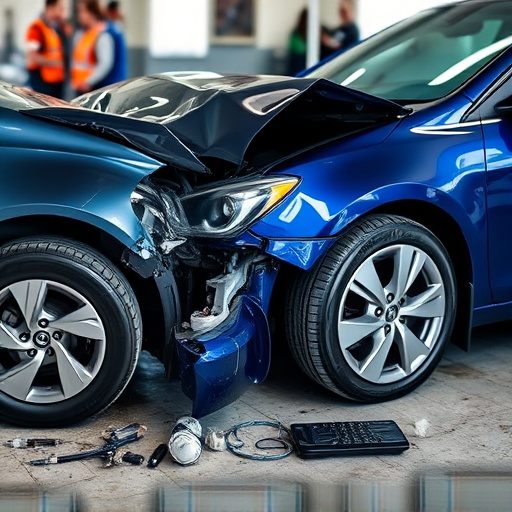
Corrosion is a natural process that occurs when certain metals come into contact with oxygen and moisture. It’s a silent enemy that can cause significant damage to vehicles over time, especially in regions with harsh climates or high humidity levels. Understanding what causes corrosion is essential for effective corrosion protection.
The impact of corrosion on vehicles is multifaceted. On the surface level, it manifests as rust spots on metal panels, which not only compromises the aesthetics but also weakens structural integrity. In severe cases, corroded components may fail completely, leading to costly repairs or even safety hazards in moving parts. Regular vehicle paint repair and car restoration techniques are often employed to combat corrosion, involving meticulous sandblasting, priming, and repainting to revive the car’s protective coating and prevent further damage. Car body shops equipped with advanced tools and expertise play a crucial role in these processes, ensuring vehicles remain protected against the relentless effects of corrosion.
How Corrosion Protection Works
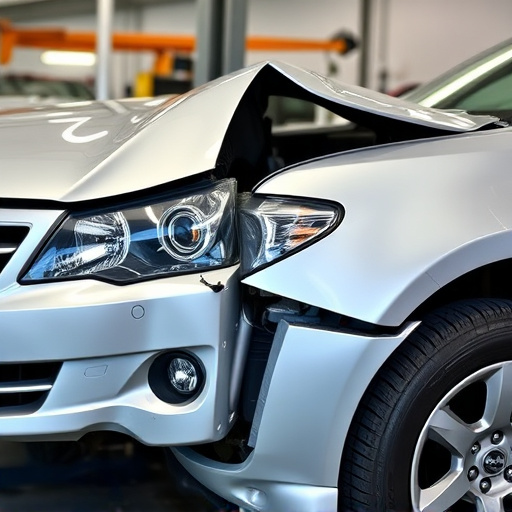
Corrosion protection works by creating a barrier between your vehicle’s metal components and the elements that cause deterioration. This process typically involves several steps, including cleaning the affected area, applying a protective coating or primer, and finally sealing it with a durable finish. These coatings can be applied manually or automatically, depending on the extent of the corrosion and the auto body shop’s capabilities.
The barrier not only prevents further oxidation but also helps in repairing existing damage, such as small dents or rust spots. This is particularly important for maintaining the structural integrity of your vehicle’s body. By visiting a reliable auto body shop that offers corrosion protection services, you can ensure that your car remains in top condition, even in regions with harsh climates or high humidity levels. This proactive approach to maintenance not only saves you from costly repairs down the line but also maintains the value of your vehicle, especially if you plan to sell it later.
Decoding Warranty Coverage for Corrosion-Related Issues
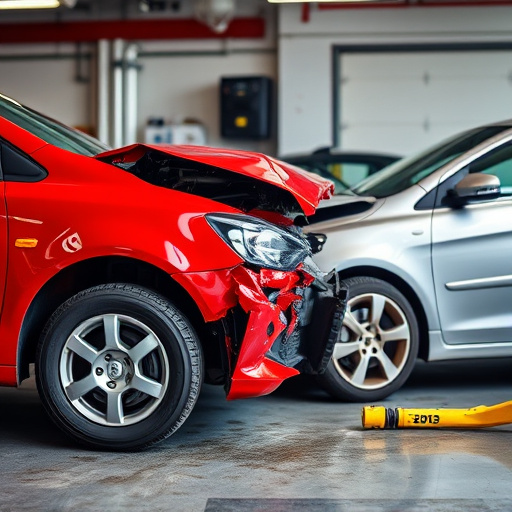
When it comes to ensuring your vehicle’s longevity, understanding warranty coverage for corrosion-related issues is paramount. Many automotive manufacturers offer comprehensive corrosion protection as part of their base warranties. This typically covers the structural integrity of your car’s body panels and frames against severe rust penetration over a specified period. However, decoding these terms can be intricate. For instance, some warranties might exclude certain areas prone to rapid corrosion, such as wheel wells or underbody components, unless specific treatments have been applied.
Paying attention to fine print is crucial here. Warranty coverage for corrosion often includes repair or replacement of affected parts but may not extend to the entire vehicle. It’s also essential to know the conditions that trigger this coverage, like whether it applies only after a car collision repair or if routine auto body work is included. Understanding these nuances ensures you’re adequately protected against unexpected corrosion-related expenses, especially when coupled with quality car dent repair services.
Corrosion protection and warranty coverage are essential aspects to consider when purchasing or maintaining any metal structure. By understanding the causes and impact of corrosion, we can effectively implement protective measures that extend the lifespan of our assets. Decoding warranty terms related to corrosion-related issues ensures that you’re protected against unforeseen costs and repairs. With clear knowledge in hand, folks can make informed decisions, ensuring their properties remain robust and resilient against this relentless natural process.


